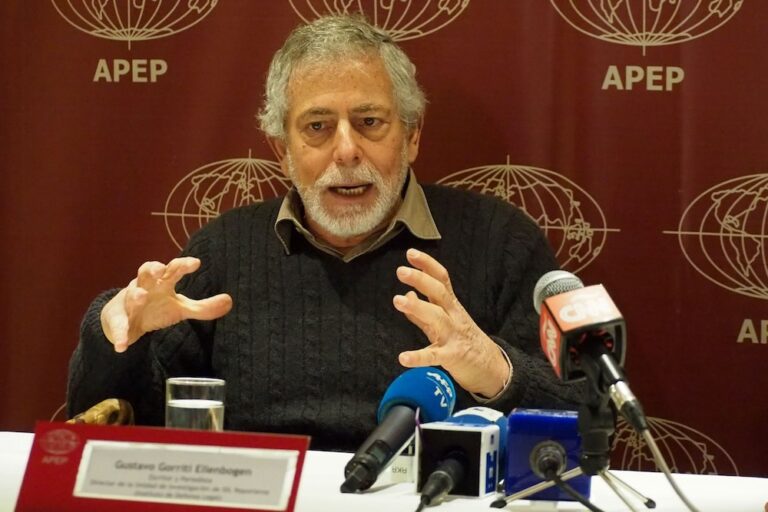(IPYS/IFEX) – On 8 November 1999, at 8:00 p.m. (local time), the US Senate approved Resolution 209, expressing its concern over the Peruvian government’s interference in matters related to press freedom and the independence of the Peruvian judicial and electoral institutions. **Updates IFEX alert of 8 October 1999** The resolution was approved unanimously and without […]
(IPYS/IFEX) – On 8 November 1999, at 8:00 p.m. (local time), the US Senate
approved Resolution 209, expressing its concern over the Peruvian
government’s interference in matters related to press freedom and the
independence of the Peruvian judicial and electoral institutions.
**Updates IFEX alert of 8 October 1999**
The resolution was approved unanimously and without any modifications, after
it was introduced by Republican Senator Jesse Helms, president of the
External Relations Committee, on 29 October. He was joined by Republican
Senators Paul Coverdell (chief of the Latin America Sub-Committee), James
Jeffords and Michael De Wine, and Democrats Patrick Leahy (member of the
Budget Allocation Committee) and Christopher Dodd (former of the Latin
America Sub-Committee). The External Relations Committee endorsed the
proposal on 3 November and it was subsequently approved by the plenary.
On 4 October, the US House of Representatives passed Resolution 57, similar
in content to the Senate’s resolution.
As was publicly announced, the Senate’s resolution expressed concern over
the serious attacks on press freedom, such as the Ivcher-Canal 2 case, and
the systematic defaming and harassment of independent journalists working
with “La República” and other media, being carried out by the so- called
“yellow press”.
The resolution warns that certain acts, such as the dismissal of three
constitutional court judges and the “manipulation” of the Magistrates’
National Council and the National Elections Jury, permitting President
Alberto Fujimori to stand for reelection a third time, are clear signs that
democracy and the rule of law are being undermined.
Commenting on the human rights situation, Resolution 209 quotes a number of
State Department reports and highlights cases of torture committed by armed
forces officers, telephone tapping and the arbitrary stripping of Baruch
Ivcher’s Peruvian citizenship in 1997.
The resolution further notes, “any individual or political movement in Peru
who attempts to undermine the country’s constitutional order for personal or
political benefit is not acting in accordance with the ‘standards’ of
representative democracies in the Western Hemisphere”. The document
continues, “the systematic abuse of the rule of law and the threats against
Peruvian democracy can undermine the confidence of foreign investors and the
country’s financial reputation”.
The Senate has recommended that Secretary of State Madelaine Albright,
submit a copy of the resolution to the Secretary General of the Organisation
of American States (OEA) and to the presidents of multilateral organisations
such as the World Bank and the Inter-American Development Bank.


